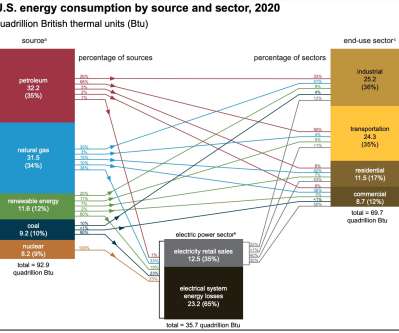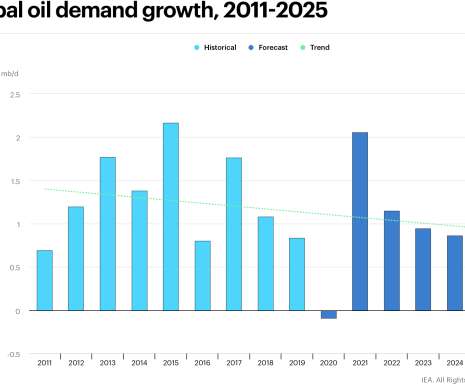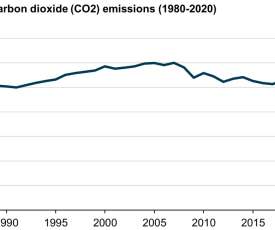EIA: US fossil fuel consumption fell by 9% in 2020, the lowest level in nearly 30 years
Green Car Congress
JULY 7, 2021
In 2020, total consumption of fossil fuels in the United States, including petroleum, natural gas, and coal, fell to 72.9 quadrillion British thermal units (Btu), down 9% from 2019 and the lowest level since 1991, according to the US Energy Information Administration (EIA) Monthly Energy Review.




























Let's personalize your content